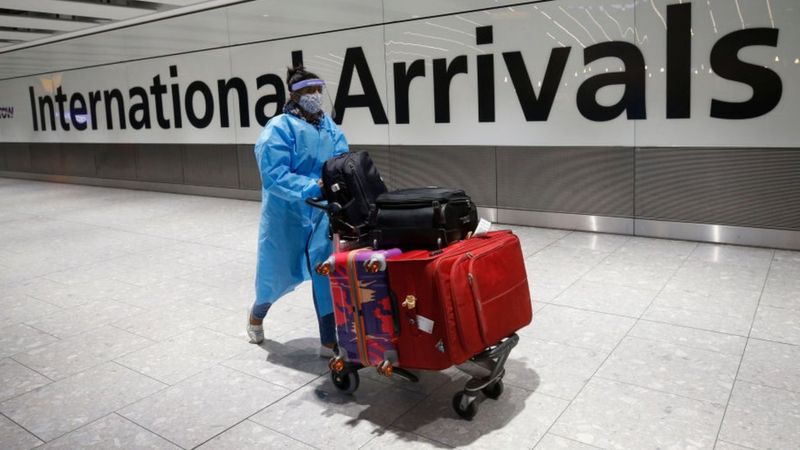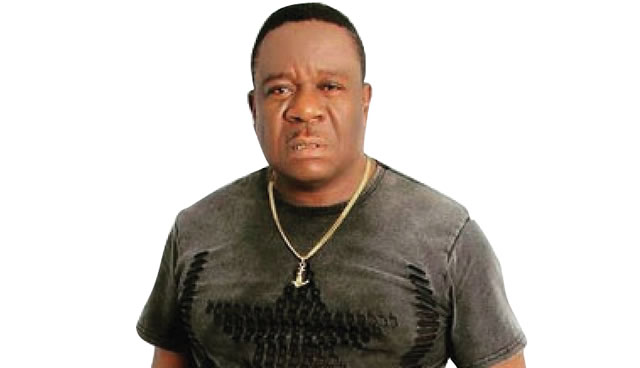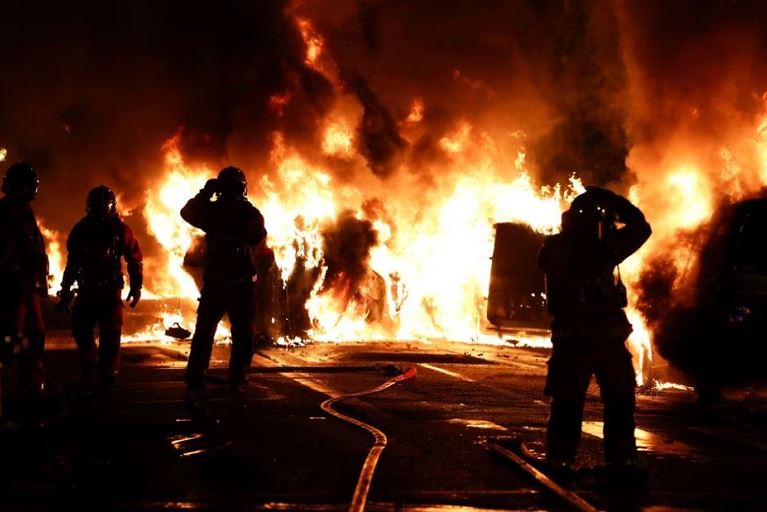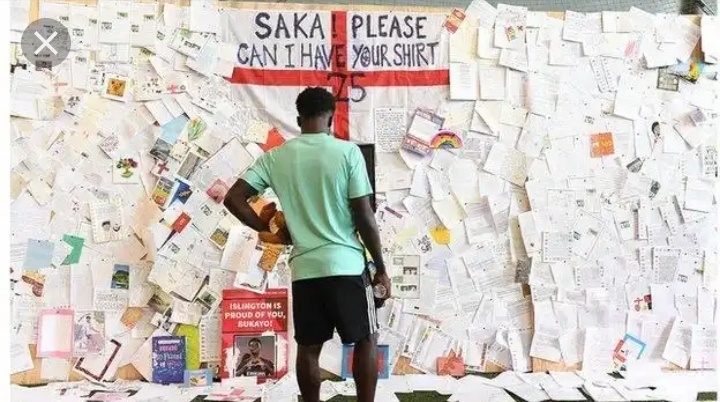UK removes all 11 countries from red list
The government has said that all 11 countries will be removed from the UK’s travel red list from 4am on Wednesday.
Angola, Botswana, Eswatini, Lesotho, Malawi, Mozambique, Namibia, Nigeria, South Africa, Zambia and Zimbabwe are on the list.
The red list was reintroduced in late November as a precaution after the emergence of the Omicron variant.
But Health Secretary Sajid Javid said it had spread so widely the rules no longer had much purpose.
“Now that there is community transmission of Omicron in the UK and Omicron has spread so widely across the world, the travel red list is now less effective in slowing the incursion of Omicron from abroad,” he told Parliament.
“Whilst we will maintain our temporary testing measures for international travel we will be removing all 11 countries from the travel red list effective from 4am tomorrow morning.”
All UK arrivals from red list countries are required to pay for and self-isolate in a pre-booked, government-approved hotel for 10 days.
But with all 11 countries being removed from that list, it was confirmed that those currently in managed quarantine would be allowed to leave early and “follow the rules as if they had arrived from a non-red list country”.
Some travellers had paid thousands of pounds to stay in government-approved quarantine hotels, with complaints of chaotic organisation and inedible food during their stays.
Anyone who has tested positive will to remain in isolation, the Chancellor of the Duchy of Lancaster Stephen Barclay told the House of Commons.
Mr Javid also said earlier he was “very persuaded” by calls to reimburse people and hoped to make an announcement on that soon.
The point of putting countries on the red list was to act quickly to slow the spread of Omicron.
Now it has spread in the community, the government doesn’t think putting people from a limited list of countries in hotels is useful.
It will be welcome news to people with plans to come to the UK from countries like South Africa and Nigeria, or who had delayed their return from those countries.
But it will be frustrating for those who did get caught up in the revival of the red list, which only started about a fortnight ago. Some people who have already paid for hotel stays want to see the government pay their costs.
The travel industry wants all restrictions removed. Businesses see testing measures as putting a dampener on their recovery. It seems the government is not prepared to go that far, just yet.
This will make travel companies, who normally benefit from a holiday booking rush in late December and early January, feel nervous.
The move follows anger from African countries, with the UN describing the ban on non-UK residents entering England as “travel apartheid”.
South African Tourism Minister Lindiwe Sisulu said the UK announcement had “come just in time to allow families and friends to unite over the festive season”.
The travel industry had also warned the restrictions were hurting business.
Tim Alderslade, head of trade group Airlines UK, said emptying the red list made “complete sense” but that the government should also scrap the remaining travel restrictions.
Currently all arrivals, regardless of where they fly from, must take Covid tests within 48 hours of setting off for the UK and PCR tests within two days of their arrival.
“If the red list isn’t necessary, given that Omicron is established here at home, then neither are the costly emergency testing and isolation measures imposed on even fully vaccinated travellers, which again put us completely at odds with the rest of Europe,” he said.
Transport Secretary Grant Shapps said these testing measures would be reviewed in the first week of January.
“As always, we keep all our travel measures under review and we may impose new restrictions should there be a need to do so to protect public health,” he said on Twitter.








